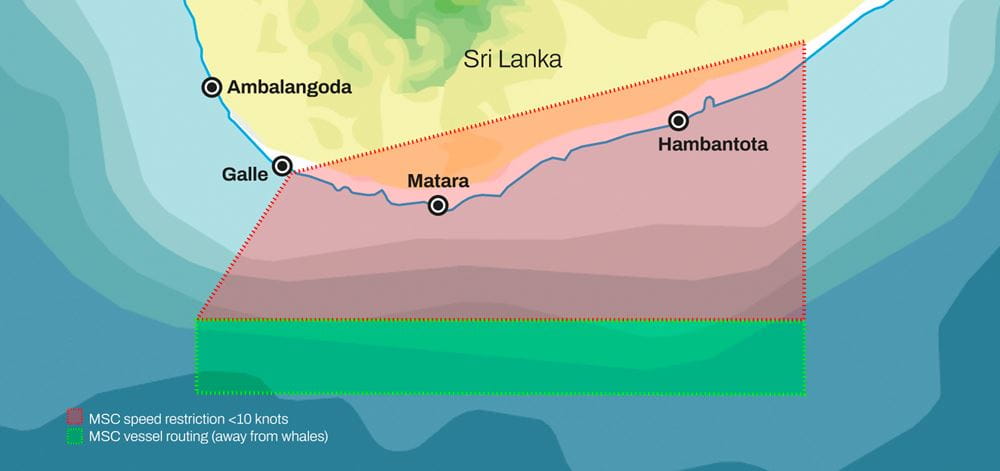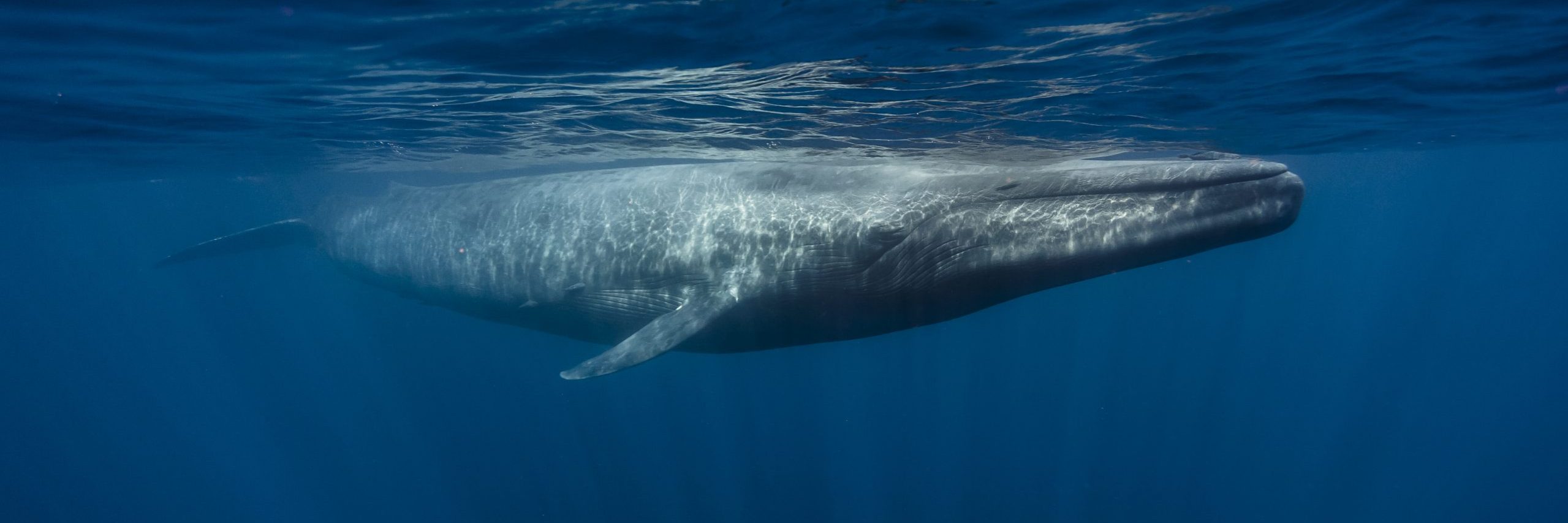MSC’s shipping line sails on more than 260 trade routes, calling at over 500 ports and is targeting net zero decarbonisation by 2050. Source: Shutterstock.
Mediterranean Shipping Company (MSC) said they’ve changed their courses around Sri Lanka in efforts to help protect blue whales.
The world’s largest shipping company started re-routing their course in mid-2022 with a new course that is 15 nautical miles south of the current traffic separation scheme (TSS) around Sri Lanka.
According to MSC the new paths will reduce the risk of striking blue whales by 95 per cent.
It’s believed that blue whales in this area are non-migratory and are resident to these waters year-round according to the International Fund for Animal Welfare (IFAW) who also say this increases the chance of more whales being killed.
Vice President of Sustainability at MSC Stefania Lallai said that it’s a company priority to ensure ocean sustainability in as many ways possible.
“We believe that the commercial shipping sector has an important role to play in protecting cetaceans, specifically in helping to reduce the risk of ship collisions with whales.
“MSC is proud to rank at or near the top of whale safety shipping rankings.

“However, we are not at all complacent. We believe that raising awareness of these issues and encouraging collaboration between industry, scientific bodies, civil society and governments is essential as we strive collectively to do more to minimise the risk of ship strikes.”
It’s not the first time the company has made such a move. Earlier in the year they re-routed their fleet around the west coast of Greece to avoid colliding with sperm whales.
Worldwide Wildlife Fund (WWF) said doing this would reduce the risk of collision by 75 per cent.
While MSC has pushed their routes further south of Sri Lanka, they say that despite years of advocacy the official shipping lane has not changed but have hope that it will soon.
“In Sri Lanka specifically, the liner shipping industry led by the World Shipping Council, of which MSC is a member, has advocated to create a new official marine traffic scheme that is fully separated from the blue whale feeding area,” they said.





